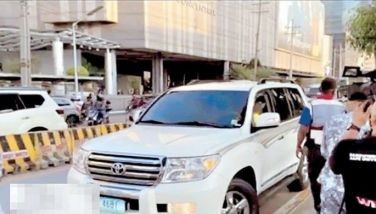Cebu City Tax Ordinance of 1960 and the liquor company
The Cebu City Council in 1960 enacted Ordinance No. 298 and amended by Ordinance No. 300 provided that "there shall be collected on any sale or disposal of liquor or intoxicating beverages of any form in the City of Cebu by manufacturers and wholesalers for purposes of a municipal tax the following rates:
(a)on sales or disposal per bottle or container not exceeding P 50, a tax of P.03;
(b)on sales or disposal per bottle or container over P50, but not exceeedingP1, a tax of P.05;
(c)on sales or disposal per bottle or container over P1, but not exceeding P2, a tax of P.15;
(d)on sales or disposal per bottle or container exceeding P2, the amount of tax provided under schedule C, plus P.10 per P1, or a fraction thereof.
Provided, however, that manufacturers, who are at the same time wholesalers of their own product, shall pay only as manufacturers under the rates specified hereinabove."
Pursuant to said ordinance, the San Miguel Brewery Inc., which was engaged in the manufacture, bottling, distribution and sale of beer throughout the Philippines, including Cebu City, paid under protest, on April 20, 1961, the sum of P29,874.69, the refund of which was prayed for.
It then filed a complaint on the ground that the city ordinance was ultra vires, for imposing a sales tax, which was allegedly beyond the city's power to levy, apart from resulting in illegal double taxation, since San Miguel Brewery already paid the Cebu City Government a business license tax of P500 per annum.
The case against the Cebu City Government was filed by the San Miguel Brewery in the Court of First Instance of Manila, the latter rendered judgment dismissing the complaint. San Miguel then sought for a review of the decision of the Court of First Instance.
When the case reached the Supreme Court, it resolved the case by reminding the parties of the existence of a law passed by Congress, Republic Act 2264 otherwise known as the Local Autonomy Act.
This law was passed decades before the passage of the Local Government Code in 1991 the nation was however on the road of giving autonomy to local government units.
The Local Autonomy Act provided powers to the local government units of the authority to impose municipal license taxes, and other taxes such as the residence tax, documentary stamp tax, business taxes, customs taxes and other similar taxes.
In resolving the issue of double taxation, the Supreme Court on February 26, 1972 said that double taxation was not prohibited by the Constitution, thereby the decision of the Court of First Instance dismissing the complaint of San Miguel Brewery was affirmed.
On the same date, the Supreme Court also dismissed the appeal filed by Cebu Portland Company against the Municipality of Naga on the same issue of double taxation.
The Cebu City Government was represented by Eliseo Ynclino, 2nd Assistant Fiscal and City Fiscal Quirico del Mar, while the Municipality of Naga was represented by Assistant Provincial Fiscal Ananias Villagonzalo Maribao (from Ronda, Cebu who was admitted to the Bar on November 10, 1934) and Fiscal Vicente M. Mendiola of Naga, Cebu and admitted to the Bar on April 6, 1953.
- Latest






















